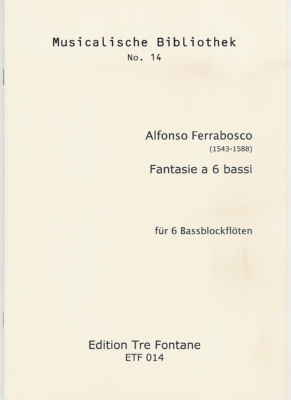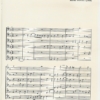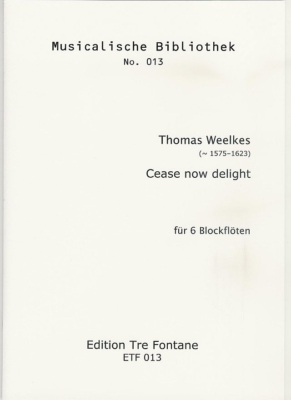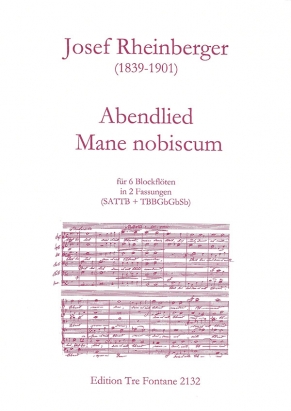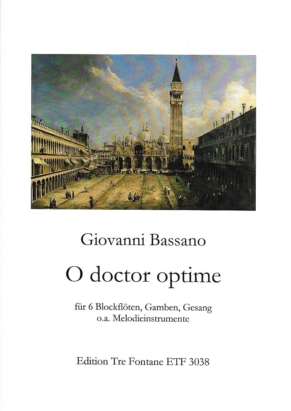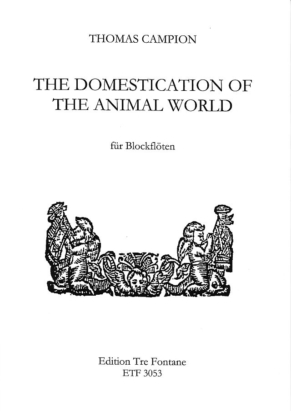Beschreibung
Alfonso Ferrabosco was an Italian who had great influence on the English musical scene. He was important in bringing the form of the Italian madrigal to England, where it flowered into a distinct and highly refined variety. Although by comparison with his Italian contemporaries his madrigals are not outstanding, they represented something very new to the English, and therefore directly influenced the great age of English madrigalism.
The Ferraboscos were a family of musicians originating in Bologna with at least five members who had importance in Italian and English music in the sixteenth and seventeenth centuries. Domenico Maria Ferrabosco (1513 – 1574) was such an esteemed composer that in 1540 the Senate of Bologna voted him a lifetime salary. Alfonso was the eldest and historically most important of his eight children.
Despite his position in Bologna, Domenico Maria often traveled and worked in other cities. In the early 1550s his father took Alfonso with him to Rome so that the boy’s evident talents could begin to be recognized. By the time he was 16, Alfonso, as well as two of his brothers, was in the service of Charles of Guise, Cardinal of Lorraine.
He visited England in the company of his uncle Girolamo, impressing Queen Elizabeth I to the extent that in 1562 she settled on him an annuity of 100 marks (66 pounds).
By 1564 he was serving Cardinal Farnese in Rome. Ferrabosco was an impulsive person. Deciding that he would prefer England, he did not bother to ask permission of his patron (a typical member of one of the most notably tyrannical noble families of Italy), but asked permission to take a short trip home to Bologna for family reasons.
He returned to England and promised to serve the Queen. He got a raise of his annuity to 100 pounds, and within a year was in Paris. He wrote to the Queen from there, acknowledged that he had a duty to return, but said he had to go to Bologna to deal with some family business. Once he got there, he wrote that he could not leave without a permit to do so from the Pope without placing his family and their property in peril.
By June 1572 he was back in England, even though he had not obtained the vital papal permission to leave Bologna. (In 1574 he wrote a letter to the Earl of Leicester asserting that as a result he had lost his inheritance.) In practical terms this was correct, for the moment. Technically, the inheritance belonging to Alfonso on the death of his father in 1574 was placed in the care of his uncle Lodovico, less on account of Alfonso’s having left without permission, but because he was absent.
Alfonso again pledged his exclusive services to Queen Elizabeth, who was willing to put up with this because of the fact that his mastery of the newly popular form of the madrigal was far in advance of that of English composers. He organized a highly popular masque in Westminster in 1572, and made a fashionable home in Greenwich. There is also a legend that another reason for the Queen’s indulgence was that he was some sort of secret agent in her service, accounting for his trips to the continent. While it is likely that she would ask him to pass on to her, as his patroness, any pertinent information he learned while in Europe, there is no real documentation to back up this idea. (Then again, there really wouldn’t be, would there?)
He also fathered two illegitimate children between 1575 and 1578. The elder, also named Alfonso Ferrabosco, became as important a composer in England as his father. Also during this period he seems to have exercised to the fullest his penchant for getting into trouble. In one letter to the Earl of Sussex he seeks help in clearing his name of some scandal. Three days later, he writes the Earl admitting that he visited the French ambassador tactlessly and therefore provoked envy and slander at the court. Three weeks later in another letter to the Earl, he begs for assistance and justice regarding a charge of robbing and murdering a young foreigner who turned out to be in the service of Sir Philip Sidney.
In late 1578 his tone has changed; he complains to Stanley that although the Queen judged him innocent, the process took too long and that slander about him was still in currency. This expression was apparently a preface to his suddenly leaving England, no doubt correctly realizing that he was rapidly making enemies and losing the high favor he had enjoyed.
Queen Elizabeth was angered, and tried to get the Queen Mother of France and her representatives in Rome to get Ferrabosco returned to her. Meanwhile, his two children were left at her court. She put them in the care of Gomer van Awsterwyke, a musician on her payroll. In 1582 she received a letter from the Queen, still asking for assistance in obtaining justice and thanking her for her compassion toward the son he had left in England. Later in the year he wrote to Walsingham, pleading that he could not return to England because he was under bond to remain in Italy.
In 1582 Ferrabosco entered the service of the Duke of Savoy. He had already married Susanna di Simonibus of Antwerp. In 1583 his Uncle Lodovico died, and the property Alfonso should have inherited finally came into his possession. Now he petitioned Queen Elizabeth to return custody of the two children in England back to him. The Queen flatly refused, and in 1586 she was still trying to get someone to ship Ferrabosco back to her realm. He died suddenly during a trip back home to Bologna. ~ Joseph Stevenson, All Music Guide

